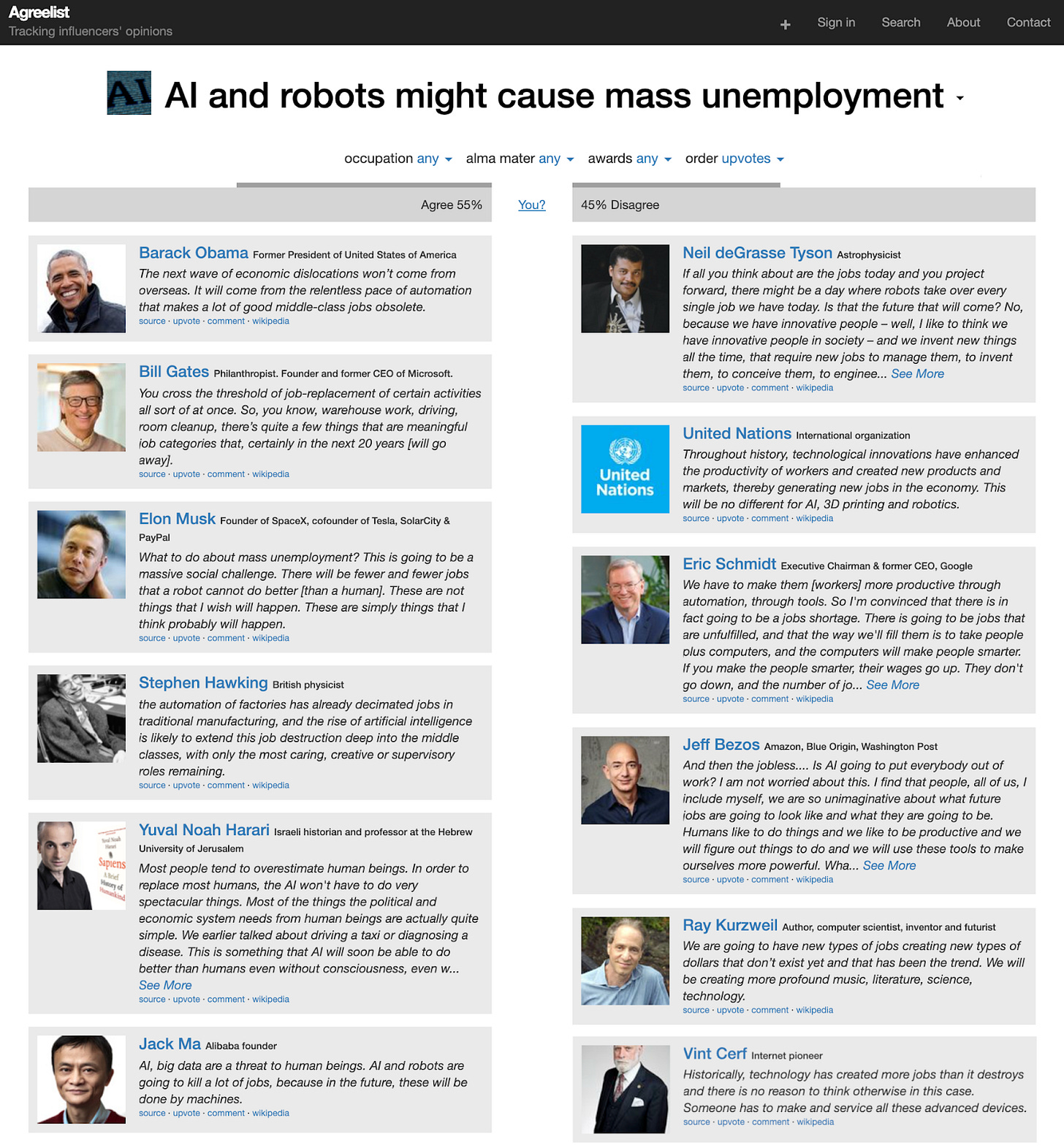AI & polarization
I recently described new voting mechanisms for decentralized autonomous organisations (DAOs). A fair question to ask is whether augmented voting would increase or reduce polarization.
One of the new voting mechanisms I described was augmented voting. An AI could vote for us depending on our past votes and the votes from people we trust. But your AI shouldn’t be limited to this. It could also help you get informed and make better decisions. For example, it could say: "you are voting as your circle/country, but others think different. Would you like to read what they are saying?"
Agreelist
Years back I had a side project that aimed to fight polarization. Agreelist aggregated opinions from well-known people on both sides of controversial topics. An integration with Wikidata/Wikipedia allowed visitors to filter opinions. E.g. by profession, alma mater, awards like Nobel Prize, etc.
Smart notifications
Going back to augmented voting, your AI could notify you when people from a specific list have viewpoints that oppose yours. You could create these lists manually, or re-use public lists. These could contain friends, people you follow, universities, specific collectives, Nobel laureates, etc.
The creation of these lists would be simplified because people would create priority lists of delegates. Many could be public like Twitter lists so others can re-use them. This would initially be used to delegate. Yet, these lists will also facilitate AI’s smart notifications.
Alignment
Of course, it is critical that the AI's interests are aligned with yours. That's why I proposed third-party voting mechanisms. Everyone should be able to create new voting mechanisms and AIs — or use those from people they trust.
Summary
It’s worth mentioning that augmented voting doesn't mean you spend less time getting informed and voting. But spending the same time you could:
1. be better informed — browsing votes/opinions like on Agreelist and via smart notifications.
2. directly vote in some decisions — more than you do today.
3. choose delegates: people, universities, priority lists, topic-based delegates, etc. By the way, this could have more impact than AI voting.
4. (optional) let the AI vote for you in decisions you don't have time to be involved in and when you prefer not to delegate.
5. Review every day or week what your AI and/or delegates are going to vote for you. When you disagree, intervene. Directly vote on individual proposals and update your delegates and AIs’ responsibilities at any time.
To sum up, new AI — and non-AI — tools could ease polarization by facilitating us to understand when and why others disagree.



Great content! 👏